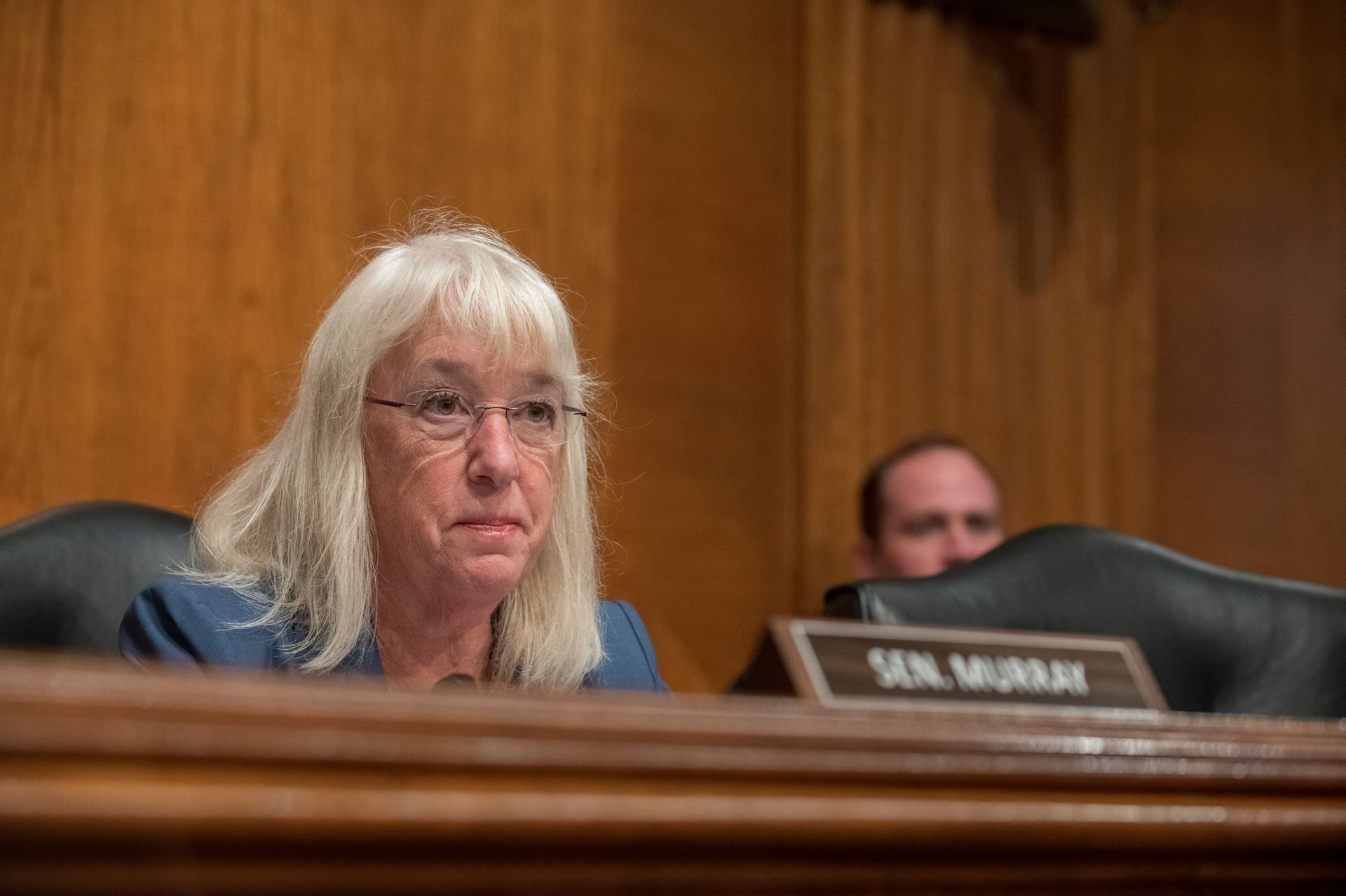Senator Murray successfully worked to include more than $168 million in the American Rescue Plan for Washington state ferries
Senator Murray: “Like so many others in our state, ferries are a part of my commute, so I know first-hand just how important it is that they are running quickly, on schedule, and safely to get people where they need to go.”
***WATCH VIDEO OF THE EVENT HERE***
(Washington, D.C.) – Today, U.S. Senator Patty Murray (D-WA), a senior member of the Senator Appropriations Committee, joined state and local transit leaders from the Kitsap Peninsula to discuss how the American Rescue Plan has helped keep ferries and Washington state commuters moving during the pandemic. During the event, Senator Murray highlighted her work to secure nearly $168 million in funding for Washington state ferries, in addition to $2.9 million to make major upgrades to services. State and regional transit organizations have also received vital aid through the American Rescue Plan, including more than $30 million for Kitsap Transit, to assist in keeping our public transportation, especially ferries, operational.
“Like so many others in our state, ferries are a part of my commute, so I know first-hand just how important it is that they are running quickly, on schedule, and safely to get people where they need to go,” said Senator Murray. “I know how much reliable public transit means to families and workers. So when COVID hit and just devastated our public transit agencies, I knew the federal government had to step up.”
“The American Rescue Plan has been critical to helping our ferries continue to keep people moving during the pandemic, but just getting through this rough patch wasn’t enough,” continued Senator Murray. “That’s why I worked to build on the progress we made with the American Rescue Plan by passing the Bipartisan Infrastructure Law—which is the single largest investment in public transit in our nation’s history. A big part of that, which I specifically fought to include, is billions to electrify and modernize our ferry fleets, and upgrade our ports.”
During the event, Senator Murray discussed her work to expand on the momentum of the American Rescue Plan by passing the Bipartisan Infrastructure Law in November—which made the single greatest investment in public transportation in the country’s history, including $2.5 billion for ferries and ferry electrification and more than $17 billion for port and waterway infrastructure. Senator Murray was instrumental in securing federal dollars to electrify and modernize Washington state’s ferry systems, as well as enhance the states’ ports, resulting in less pollution and congestion, and shorter commutes for Washington state families.
Senator Murray also reiterated her commitment to secure more funding for transportation infrastructure grant programs that help make Washington state transit projects possible while saving state taxpayers billions.
Senator Murray was joined by Roger Millar, Washington Secretary of Transportation; John Clauson, Executive Director of Kitsap Transit; Greg Wheeler, Mayor of Bremerton; Morgan Fanberg, PE, Glosten President; and Lisa Renehan, PE, Vice President, Glosten and Managing Director, Foil Ferry, LLC.
“As the agency with the nation’s largest ferry system, we strive to be a leader for sustainable growth, reducing congestion on roads and embracing new, greener technologies while providing safe and reliable service. Electrification of our fleet and terminals is a key part of our overall transportation system stewardship. We appreciate Senator Murray’s longstanding support of Washington State Ferries and ferries electrification,” said Roger Millar, Washington Secretary of Transportation
“Thanks to the American Rescue Plan, we kept our buses and ferries running during the darkest days of the pandemic, transporting nurses, grocery clerks and other essential workers so society could keep moving,” said John Clauson, Executive Director of Kitsap Transit. “With the Bipartisan Infrastructure Law, we can seize this moment to realize the bright future that’s ahead – an era of zero-emission electric buses and ferries – so we keep society moving toward a more sustainable, equitable and prosperous future. I want to thank Senator Murray for her ongoing commitment to the electrification of our ferries, an issue of importance to all who live in the Puget Sound region.”
“I can’t say enough about how much I appreciate the stimulus funding that will benefit our community. I also look forward to developing even stronger partnerships as efforts move forward. We’re working closely with Kitsap Transit, but we will also be working with Washington State Ferries. We are very supportive of electrifying our fleet and creating a low carbon and zero-carbon product. In Bremerton, the stimulus funds that Senator Murray helped secure will make a difference to continue building a walkable, cyclable and multi-modal community where ferries and public transit are a vital link,” said Greg Wheeler, Mayor of Bremerton.
“The Foil Ferry gives us the opportunity to pave the way for technological leadership and economic growth in our state while providing superior passenger service to commuters not currently served by existing ferry routes,” said Morgan Fanberg, Glosten President.
“The Glosten/Bieker Foil Ferry is an opportunity to put Washington State on the map as world leaders in decarbonized marine transportation. Foil Ferry combines the proven technologies of ultra-efficient hydrofoils and lightweight carbon fiber hull construction. When coupled with today’s advancements in marine battery technology, you get a zero-emission vessel that boasts a superior passenger experience while realizing significantly reduced lifecycle costs,” said Lisa Renehan, PE, Vice President, Glosten and Managing Director, Foil Ferry, LLC.
In addition to funding for ferries, ports, and waterways, Washington state is set to receive at least $4.7 billion in highway funding, $605 million for bridge replacement and repairs, $1.79 billion for public transportation, and $71 million to support the expansion of an electric vehicle charging network in the state in formula based grants from the Bipartisan Infrastructure Law alone.
###


